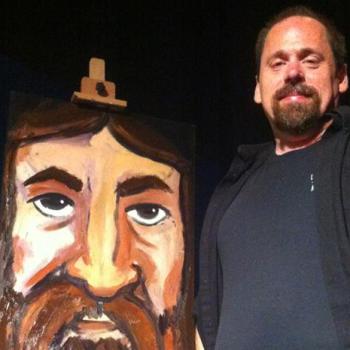Some press organs have been better than others. Some outlets were extremely careless about their characterization of the facts in the case, where they described the case as about whether CLS could exclude "gays." That's completely ignoring the issue of discrimination on the basis of orientation versus conduct and belief.
Some newspapers also talked as though this were about CLS getting money. There is some possibility of money being involved. There is a student activities fee paid to the student government, and the student government doles out money to student groups that put on activities of campus-wide importance. If CLS prevails, they will be able to apply for that, but whether the student government gives them money is extremely unlikely. The student government submitted a brief in this case saying that the "vast majority" of students at Hastings believe that CLS ought to be kept off of campus, and that students ought to have a right to join CLS in order to "vote for change from within" -- which is to say that people who disagree with CLS's beliefs ought to be able to join and vote to change those beliefs. So the student government is hardly likely to give CLS money. The case is not about money.
The press was also very sloppy in discussing the Constitutional treatment in past cases of access to a forum in a public university. I believe this is the sixth case involving various student groups who are excluded. The Supreme Court has stood up for the student groups every time, and every time the University claims that this should be treated as a subsidy and they shouldn't be required to sponsor or endorse the group, and that the group is free to exist but not get the active support of the university. Every time, every time the Supreme Court has responded that a forum for speech and the use of public facilities is not endorsement, is not sponsorship, is not subsidy, and the University has to comply with the First Amendment in just the way that towns do with respect to access to parks and sidewalks and other forums for speech. The press did not acquaint their readers with that rather important part of the background.
But there's not much use complaining about the press. Some are better and some are worse. Some skirt the issues. The New York Times editorial says, "This is an easy case; the government does not have to subsidize discrimination." Thus they beg the question of what is a subsidy and they beg the question of what is discrimination. I also cannot believe that they would take this position if the shoe were pinching a different foot.
Michael W. McConnell received his law degree at the University of Chicago and clerked for Supreme Court Justice William Brennan. He is respected on the Right for his originalist judicial philosophy, and was considered a likely selection for the Supreme Court during the administration of George W. Bush. He is also respected on the Left for his criticism of the impeachment of President Clinton and of Bush v. Gore. When Barack Obama was the editor of the Harvard Law Review, it was Michael McConnell, then a professor at the University of Chicago, who was impressed by a suggestion the young Obama made on one of McConnell's articles and thus brought Obama on a fellowship to Chicago.
McConnell has written books and articles and numerous influential opinions. The Supreme Court has reviewed four cases in which McConnell wrote an opinion, and has agreed with McConnell every time.
For more articles like this, see the Evangelical Portal.





